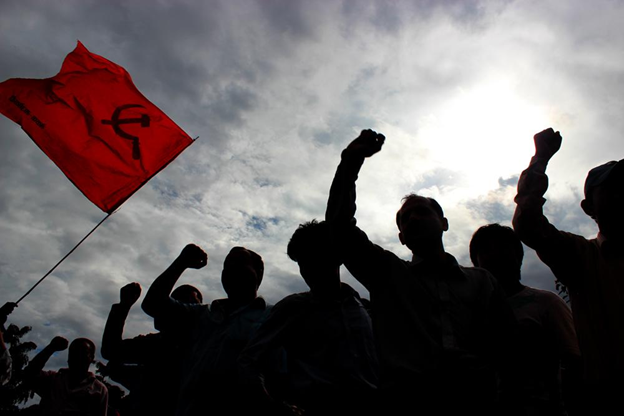Nepal Peace Process on Track
Peace in the making in Nepal?

NEW DELHI: In Nepal, the constitution writing process is back on track. On September 2, the big three parties, Nepali Congress, UML, UCPN-Maoist, have agreed to engage with Mohan Baidya ‘Kiran’ led Communist Party of Nepal-Maoist. The CPN-M is the biggest party outside the Constituent Assembly and has been proposing an all party conference to resolve the contentious issues of the Constituent Assembly. It has warned of consequences for the government if it tries to ignore its alliance.
The breakthrough has come just four days before the deadline set by the working calendar of the Constituent Assembly to build a consensus on all disputed issues. On 5 April, the Constituent Assembly had formed the Constitutional Political Dialogue and Consensus Committee under UCPN-M leader Dr Baburam Bhattarai and mandated it to underline the bone of contention among the parties in and outside the Constituent Assembly. On May 16, the committee sent a list of 145 points related to the constitution writing process that, it said, needed addressing. Accordingly, the committee held talks with 45 parties outside the Constituent Assembly on 7 and 8 July to put on record their demands. However, the CPN-M, which, along with 33 other parties, had boycotted the second Constituent Assembly election held in November last year, refused to sit for talks saying that it didn’t recognize the new Constituent Assembly. It demanded a direct talk among the parties and all the stakeholders in Nepal.
Since then the writing process had stuck in limbo. It looked as if the Sushil Koirala government had made up its mind to bypass CPN-M and parties outside the Constituent Assembly while working on the constitution. Had it happened it would have set a wrong precedent.
Since last November, the political landscape in Nepal has completely changed. There have emerged alternative voices in every major political party. In the CPN-M, one strong voice is represented by Netra Bikram Chand 'Biplab', a charismatic young leader with an influencing following. The party which, till recently, had claimed to be above factionalism is facing an existential crisis. Biplab has serious reservations on the line taken by the party leadership since the second Constituent Assembly election. He has attacked the leadership for not being able to formulate concrete line in the changed scenario. He believes that the line of the party chairman Kiran and other senior leaders, which tells that the Constituent Assembly is still relevant, has exhausted and the party should change its course of action. In a recently concluded meeting of the central committee, Biplab had presented an alternative proposal challenging the Chairman’s.
Biplab’s proposal to the party is: go back to the People’s War. His emphasis is on getting out of the peace process and going underground. He has strongly rejected Kiran’s argument for a peaceful struggle until the time is mature for a ‘people’s revolt’. He is of belief that there is no scope for peaceful struggle for Socialism in Nepal and that line of ‘People’s revolt’ is the excuse of the status quoist forces in the party! Biplab seems ready to say goodbye to fellow comrades if they don’t make amendments in the party’s present line. If this happens, the peace process in Nepal will certainly collapse. The leaders must understand that the consequences of the collapse will not be Biplab’s sole doing instead more responsibility will be of the government.
For better part of its term, the government had seldom shown seriousness in fulfilling its commitment to the Nepalese people of giving them a new constitution. The peace process which began 8 years ago often looked an unending exercise. The Constituent Assembly is yet to present the first draft of the constitution! Experts believe that the real process will begin after the first draft is made public because only then people will actually join the debate which has been going on behind the curtain for all these years.
Hence, the agreement to hold talk with the CPNM is a welcome step. It sends a clear message that the government is serious for a meaningful and constructive dialogue with all the voices without caring much for their size and standing. It is also a message to Biplab and his supporters that their fear that there is no scope for peaceful and democratic solution of Nepal’s problem is without merit.



